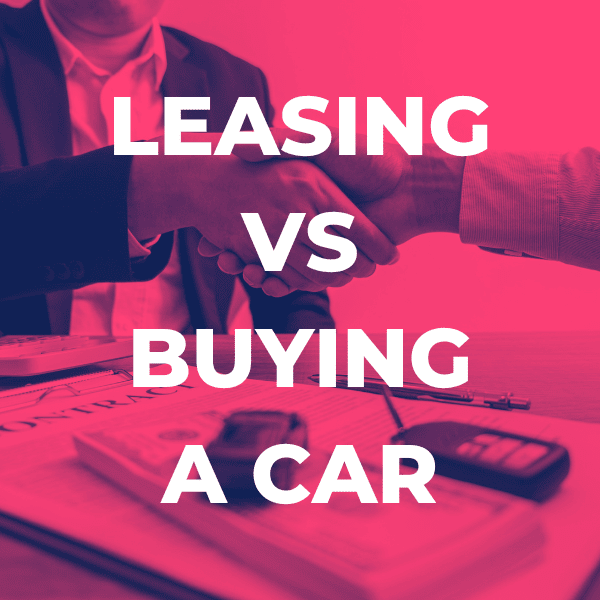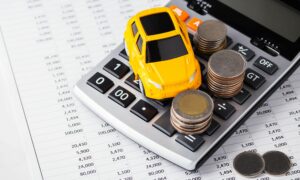Deciding whether to lease or purchase a car is an important decision that can significantly impact your finances and lifestyle.
In this in-depth article, we will compare and contrast the advantages and disadvantages of leasing vs buying a car to help you make an informed decision.
Understanding Car Ownership Options: Leasing and Buying
Before diving into the pros and cons, it’s essential to understand the differences between buying and leasing a car. Buying a car means purchasing the car in cash outright or through financing, which results in ownership of the vehicle.
On the other hand, leasing a new vehicle is more like renting it for a specified lease period, usually 2-3 years, after which you have the option to buy the car, lease a new one, or walk away without owning anything.
Should I Lease or Buy a New Car?
Deciding whether leasing or buying a car is right for you depends on individual circumstances, preferences, and financial situations. Here are some general guidelines to help determine which option may be more suitable:
Lease a car if you:
- Prefer driving a brand-new car every few years: Leasing allows you to drive a new car more frequently as the lease term is usually 2-4 years. If this is you, it could be better to lease.
- Want lower monthly payments: Lease payments are generally lower than loan payments because you only pay for the vehicle’s depreciation during the lease.
- Have a stable income and predictable driving needs: Leasing contracts have mileage limits, and exceeding them can result in costly fees. If you have a stable income and predictable driving habits, leasing may be a good option.
- Use the car for business purposes: If you use the car for your business, you may be able to deduct some or all of the lease payments as a business expense, depending on your tax jurisdiction.
- Desire minimal maintenance responsibilities: As you will be driving a new or almost-new car, it is less likely to require major repairs, and most of the maintenance may be covered under the manufacturer’s warranty.
Buy a car if you:
- Plan to keep the same car for a long time: If you want to keep the car for more than 5-6 years, buying could be more cost-effective in the long run.
- Drive a lot: If you have high annual mileage, buying a car is more suitable because there are no mileage limitations and you won’t incur excess mileage fees.
- Want to build equity: When you buy a car and pay off the loan, you own the car outright and can use it as a trade-in or sell the car to recoup some of your investment.
- Prefer to customize your car: Owning a car allows you to make any modifications or customizations you like, without worrying about violating the terms of a lease agreement.
- Can handle maintenance and repairs: As a car ages, it may require more maintenance and repairs. If you are willing to take on this responsibility, buying a car may be a better fit for you.
Keep in mind that these are general guidelines, and your personal circumstances may vary. It’s essential to consider factors like your budget, credit score, and long-term plans before making a decision. Consulting with a financial advisor or an automotive expert can also be helpful in making an informed decision.
Pros and Cons to Buying a Car
Pros:
Ownership and equity building: When you buy a car, you own it, and as you pay off your loan, you build equity in the vehicle. This equity can be used as a down payment when purchasing a new car or as collateral for a loan.
Freedom to customize and modify the car: Owning a car allows you to make modifications and customizations without restrictions, which is not possible with leased vehicles.
No mileage restrictions: Unlike leasing, there are no mileage restrictions when you own a car. You can drive as much as you want without worrying about incurring extra fees.
Ability to sell or trade-in at any time: As the owner, you can sell or trade-in your car whenever you choose, giving you more flexibility.
Cons:
Higher upfront costs: It usually requires a more substantial down payment to buy a new car, and financing a car means higher monthly payments on an auto loan compared to leasing.
Depreciation of the car’s value: Cars depreciate quickly, and when you own a car, you bear the loss of value over time.
Potentially higher monthly payments: Financing a car loan typically involves higher monthly cost than leasing due to the goal of full ownership.
Long-term maintenance costs: As a car ages, maintenance costs can increase, and you are responsible for these expenses as the owner.
Pros and Cons of Leasing a Car
Benefits of Leasing:
Lower upfront costs: Leasing a new car often requires a smaller down payment and may have lower monthly payments compared to financing.
Potential for lower monthly payments: Since you’re only paying for the vehicle’s depreciation during the lease term, monthly payments are generally lower than financing.
Regularly driving a new car: Leasing allows you to drive a new car every few years, which means you can enjoy the latest car technology and features. Plus you can take advantage of new lease deals when they come along.
Warranty and maintenance coverage: Leased cars are usually under warranty for the lease duration, which can help minimize maintenance expenses.
Cons:
No ownership or equity: When you lease a car, you don’t build any equity in the car, and you don’t own the car at the end of the lease term.
Mileage restrictions: Leasing agreements typically have mileage limits, and exceeding them can result in additional fees. In other words, you aren’t free to drive the car as much as you’d like.
Fees for wear and tear or excessive mileage: Leased vehicles are subject to wear-and-tear charges if the car is returned in poor condition or with excessive mileage.
Limited ability to customize or modify the car: Leasing companies usually have strict rules about vehicle modifications, limiting your ability to personalize your car.
Factors to Consider When Choosing Between Buying and Leasing
Financial factors
Consider your budget, long-term financial goals, and credit score when evaluating whether to buy or lease. Leasing may offer lower upfront and monthly costs, but buying can lead to long-term financial benefits through ownership and equity building.
Compare lease and finance offers from dealerships
Obtain multiple quotes for both leasing and financing options to ensure you get the best deal possible. Don’t be afraid to negotiate with dealers to achieve the most favorable terms.
Consider the total cost of ownership
Calculate the total cost of owning a car, including purchase price, financing costs, car insurance, taxes, maintenance, and potential resale value. Compare this to the total cost of leasing, including monthly payments, fees, and possible end-of-lease charges.
Consult a financial advisor or use online calculators
Seek professional advice from a financial advisor, or use online calculators to compare the costs of buying and leasing a car over the long term. This can help you make a more informed decision based on your specific financial situation and goals.
In conclusion, the decision to buy or lease a car ultimately depends on your personal preferences, car shopping tolerance, financial situation, and long-term objectives. By understanding the key differences between buying and leasing, considering relevant factors, and carefully evaluating your options, you can make the best choice for your needs.
Remember that car ownership is a significant commitment, so take the time to research and consider your options before making a decision.
FAQs: Buying vs Leasing a Car
Q1: How does leasing a car differ from financing a car?
A: Leasing a car is like renting it for a specific period, usually 2-3 years, with the option to buy the car, lease a new one, or walk away at the end of the term. Financing a car involves taking out a loan to purchase the vehicle, and you own the car once the loan is paid off.
Q2: Can I negotiate the terms of a lease payment or car purchase price?
A: Yes, you can negotiate the terms of both a lease and a purchase. It’s essential to research and compare offers from multiple dealerships to ensure you’re getting the best deal.
Q3: What happens if I exceed the mileage limit on a leased car?
A: If you exceed the mileage limit specified in your lease agreement, you may be subject to additional fees. These fees can vary depending on the leasing company and the terms of your contract.
Q4: Can I end a lease early?
A: It is possible to end a lease early, but it may come with financial penalties, such as an early termination fee. The specific terms and conditions will be outlined in your lease agreement.
Q5: Is it possible to lease a used car?
A: Yes, some dealerships offer leases on used cars, although it may not be as common as leasing new cars. Leasing a used car can provide a lower monthly payment, but it’s crucial to ensure the car is in good condition and has a reliable maintenance history.
Q6: What credit score do I need to lease or finance a car?
A: Credit score requirements can vary depending on the lender or leasing company. Generally, a higher credit score will result in better financing or leasing terms. A score of 660 or higher is typically considered good, while scores above 720 are considered excellent.
Q7: Can I buy my leased car at the end of the lease term?
A: Most leased car agreements include a purchase option, allowing you to buy the car at the end of the lease term for a predetermined price. This price, called the residual value, is usually outlined in your lease contract.
Q8: Should I lease or buy a luxury car?
A: If you enjoy driving the latest luxury models and want to experience new features and technology every few years, leasing could be a better option. Leasing often results in lower monthly payments compared to buying, as you only pay for the vehicle’s depreciation during the lease term. This may allow you to afford a more luxurious car than you could if you were purchasing it.





